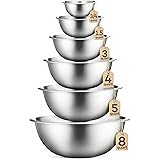Beyond Digestion: How Gut Bacteria Regulate Inflammation, Immunity & Brain Function
We often talk about what to eat — more greens, less sugar, enough hydration. But the real secret to feeling great might lie deeper inside your body — in your gut.
Your gut isn’t just a digestion zone; it’s a living ecosystem that influences nearly every part of your health. In fact, around 70% of your immune cells live in your gut (a 2024 review from Nature Reviews Immunology), and scientists now see it as a major control center for inflammation, immunity, and even mental well-being.
When your gut is healthy, it keeps inflammation in check. But when things go off balance, that same system can quietly start fueling fatigue, bloating, brain fog, and a long list of chronic issues.
Real-Life Example: When a “Healthy” Lifestyle Still Led to Inflammation
For years, Sophie, a 38-year-old graphic designer, believed she was doing everything right.
She ate light meals, exercised, and rarely got sick. But over time, she noticed persistent bloating, skin breakouts, and joint pain. Her energy dipped, even after a full night’s sleep.
Blood tests looked “normal,” but Sophie felt far from it. Eventually, a nutrition specialist suggested a gut health assessment, and that’s where things clicked.
The results showed a gut imbalance — low levels of beneficial bacteria like Bifidobacterium and Lactobacillus, and higher levels of inflammatory species. On top of that, her gut lining showed signs of being too permeable — a condition often called “leaky gut.” Tiny gaps in her intestinal wall were allowing unwanted particles into her bloodstream, quietly activating her immune system.
The outcome?
A constant, low-grade inflammatory state — not enough to cause an immediate illness, but enough to sap her energy and trigger discomfort.
Once she began focusing on her gut — eating more fiber, fermented foods, and whole ingredients, and cutting back on processed snacks — her symptoms slowly disappeared. Her energy returned. Her skin cleared. Her body felt “lighter” again.
1) How Gut Health and Inflammation Are Connected
Your Microbes, the Body’s Unsung Heroes
Your gut is home to trillions of microbes — bacteria, fungi, and viruses that help digest food, absorb nutrients, and train your immune system.
When the “good guys” are thriving, they produce compounds that calm inflammation and protect your gut lining.
But when harmful bacteria take over, they trigger immune reactions that can lead to systemic inflammation — affecting everything from your brain to your joints.
The Gut Wall: Thin but Mighty
Your gut lining is just one cell thick — a single protective wall between your digestive tract and bloodstream.
When stress, poor diet, or certain medications damage this barrier, it becomes “leaky.” Small food particles or bacterial fragments slip into your circulation, confusing your immune system into staying in constant defense mode.
Balance Is Everything
Healthy gut bacteria produce short-chain fatty acids like butyrate, which strengthen your gut wall and lower inflammation.
When those bacteria are depleted, your gut loses one of its natural anti-inflammatory defenses.
Gut health isn’t just about digestion — it’s about how your whole body communicates and protects itself. When your microbiome is nourished, your immune system learns to stay calm, inflammation cools down, and your energy naturally returns.
2) Why Gut-Driven Inflammation Matters Everywhere
Inflammation that begins in your gut rarely stays there. Here’s how it spreads:
Immune System Overload: When your immune system is constantly fighting off “leaks” from the gut, it uses up energy that should go toward repair and resilience.
Mood and Brain: The gut and brain communicate through what’s called the gut-brain axis. Gut imbalances are linked to mood swings, anxiety, and brain fog.
Skin and Hormones: Skin irritation, acne, and hormonal fluctuations often trace back to inflammation that starts in the gut.
Chronic Disease Risk: Studies connect poor gut health to issues like insulin resistance, joint inflammation, and even heart disease.
3) How to Support Your Gut and Calm Inflammation
You don’t need an extreme detox to heal your gut. It’s about nourishing your internal ecosystem — not punishing it.
a) Feed the Good Bacteria
Your good microbes love fiber and prebiotics — the natural “food” that helps them grow.
Add more:
Garlic, onions, leeks, asparagus
Bananas, oats, leafy greens, root veggies
These help your gut produce short-chain fatty acids that protect your gut lining and keep inflammation under control.
b) Add Fermented Foods
Foods like yogurt, kefir, sauerkraut, kimchi, and kombucha introduce new beneficial bacteria.
Start small — a few spoonfuls or sips a day can make a noticeable difference in digestion and energy.
c) Support the Gut Lining
Your gut wall needs the right building blocks to stay strong.
Omega-3s (from salmon, flax, or chia) support repair.
Antioxidants (from berries, turmeric, green tea) help reduce stress on gut cells.
Limit processed foods and excess sugar, which can feed the wrong bacteria.
d) Manage Stress and Sleep
Stress hormones can weaken your gut barrier and harm your microbiome balance.
Try deep breathing, gentle movement, or journaling — they truly make a difference.
And aim for 7–8 hours of quality sleep; your gut microbes have their own daily rhythm that depends on your rest.
e) Supplements (in some severe cases)
Some people benefit from:
Probiotics (specific strains like Lactobacillus or Bifidobacterium)
L-glutamine or butyrate to support gut repair
Collagen and zinc to strengthen gut tissue
⚠️ Note: These are general wellness ideas — not medical advice. Always consult a qualified healthcare professional before starting supplements, especially if you have chronic conditions.
4) Final Thoughts
Healing your gut is not about perfection. It’s about listening to your body, one meal and one habit at a time. The best part? Your gut microbiome can begin shifting within days of better choices, with meaningful changes unfolding over weeks and months. Every intentional choice you make is a signal to your body that you’re ready to heal. By the way, here is the recipe if you want to make that delicious meal above!
Magnetic Knife Holder for Wall, Knife Magnetic Strip Magnetic Knife Holder for Refrigerator Mount Knife Rack Kitchen Utensil Holder Metal Tool Holder Knife Block Kitchen Organizers Accessories 10 Inch
FineDine Stainless Steel Mixing Bowls Set, Dishwasher Safe, Up To 8 Quart Metal Mixing Bowls For Kitchen, Nesting, Large, Small, Big Food Prep, Cooking, Baking
This site contains affiliate links. I may earn a commission when you purchase through these links at no additional cost to you.



